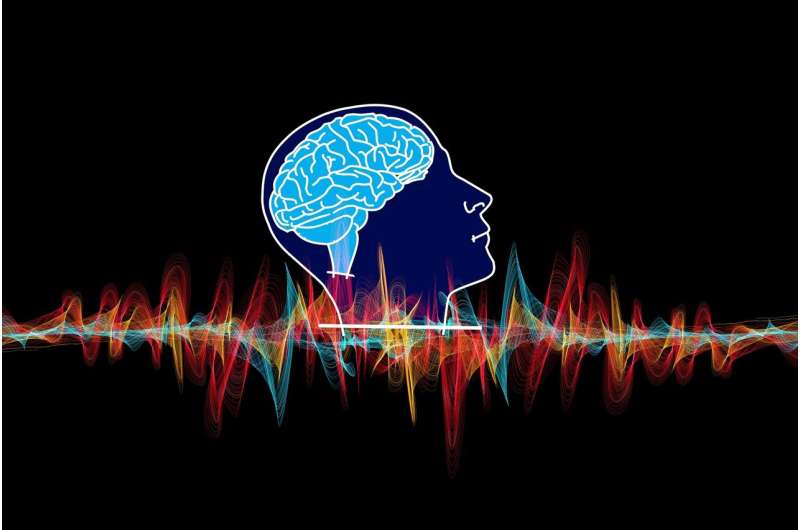This article has been reviewed according to Science X's editorial process and policies. Editors have highlighted the following attributes while ensuring the content's credibility:
fact-checked
peer-reviewed publication
trusted source
proofread
New study links brain waves directly to memory

Neurons produce rhythmic patterns of electrical activity in the brain. One of the unsettled questions in the field of neuroscience is what primarily drives these rhythmic signals, called oscillations. University of Arizona researchers have found that simply remembering events can trigger them, even more so than when people are experiencing the actual event.
The researchers, whose findings are published in the journal Neuron, specifically focused on what are known as theta oscillations, which emerge in the brain's hippocampus region during activities like exploration, navigation and sleep. The hippocampus plays a crucial role in the brain's ability to remember the past.
Prior to this study, it was believed that the external environment played a more important role in driving theta oscillations, said Arne Ekstrom, professor of cognition and neural systems in the UArizona Department of Psychology and senior author of the study. But Ekstrom and his collaborators found that memory generated in the brain is the main driver of theta activity.
"Surprisingly, we found that theta oscillations in humans are more prevalent when someone is just remembering things, compared to experiencing events directly," said lead study author Sarah Seger, a graduate student in the Department of Neuroscience.
The results of the study could have implications for treating patients with brain damage and cognitive impairments, including patients who have experienced seizures, stroke and Parkinson's disease, Ekstrom said. Memory could be used to create stimulations from within the brain and drive theta oscillations, which could potentially lead to improvements in memory over time, he said.
UArizona researchers collaborated on the study with researchers from the University of Texas Southwestern Medical Center in Dallas, including neurosurgeon Dr. Brad Lega and research technician Jennifer Kriegel. The researchers recruited 13 patients who were being monitored at the center in preparation for epilepsy surgery. As part of the monitoring, electrodes were implanted in the patients' brains for detecting occasional seizures. The researchers recorded the theta oscillations in the hippocampus of the brain.
The patients participated in a virtual reality experiment, in which they were given a joystick to navigate to shops in a virtual city on a computer. When they arrived at the correct destination, the virtual reality experiment was paused. The researchers asked the participants to imagine the location at which they started their navigation and instructed them to mentally navigate the route they just passed through. The researchers then compared theta oscillations during initial navigation to participants' subsequent recollection of the route.
During the actual navigation process using the joystick, the oscillations were less frequent and shorter in duration compared to oscillations that occurred when participants were just imagining the route. So, the researchers conclude that memory is a strong driver of theta oscillations in humans.
One way to compensate for impaired cognitive function is by using cognitive training and rehabilitation, Ekstrom said.
"Basically, you take a patient who has memory impairments, and you try to teach them to be better at memory," he said.
In the future, Ekstrom is planning to conduct this research in freely walking patients, as opposed to patients in beds, and observe how freely navigating compares to memory with regard to brain oscillations.
"Being able to directly compare the oscillations that were present during the original experience, and during a later retrieval of that, is a huge step forward in the field in terms of designing new experiments and understanding the neural basis of memory," Seger said.
More information: Sarah E. Seger et al, Memory-related processing is the primary driver of human hippocampal theta oscillations, Neuron (2023). DOI: 10.1016/j.neuron.2023.06.015




















